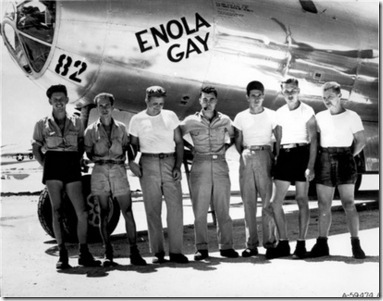
Retired Brig. Gen. Paul Tibbets picture
To the end, he has no regrets over dropping the first A-bomb
Paul Tibbets, the pilot and commander of the B-29 that dropped the atomic bomb on Hiroshima, Japan, died Thursday November 1. He was 92.
Tibbets died at his Columbus home after a two month decline in his health stemming from a variety of health problems.
Tibbets had requested no funeral and no headstone, fearing it would provide his detractors with a place to protest.

Tibbets' historic mission in the plane Enola Gay, named for his mother, marked the beginning of the end of World War II. It was the first time man had used nuclear weaponry against his fellow man.
It was the morning of August 6, 1945, when the plane and its crew of 14 dropped the five-ton "Little Boy" bomb over Hiroshima. The blast killed 70,000 to 100,000 people and injured countless others.
On August 9, a second B-29, piloted by Maj. Charles Sweeney, delivered "Fat Man" over Nagasaki, killing an estimated 40,000 people. Tibbets did not fly in that mission. The Japanese surrendered a few days later, ending the war.
Tibbets, then a 30-year-old colonel, never expressed regret over his role. It was, he said, his patriotic duty - the right thing to do.
Source: Chinadaily
Link to the Salt Lake Tribune to learn more about Paul Tibbeys' 1945 mission. Paul Tibbets on
Acepilots



